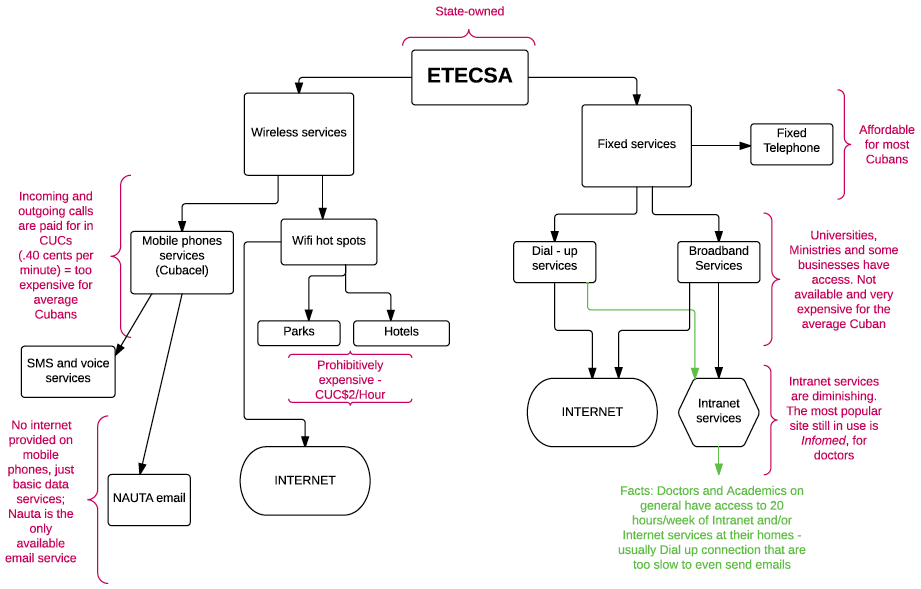Overview of Telecommunication #ICTInfrastructure #Internet #MIC #MINCOM #PresentICTInfrastructure #Revolution #SovietUnion #USSanctions
Overview of Telecommunications
Telecommunication Policy and Governance
Table of Contents
The Cuban government has maintained a lukewarm standpoint towards Internet expansion. While the government has supported the spread of digital information systems that serve the country's education and health systems, as well as other sectors contributing to the public good, it has also shown itself to be fearful of potential dissidence, cyberattacks, or the penetration of foreign interests into Cuban society. The Ministry of Information and Communications (MINCOM) aims to increase the use of information and communication technologies (ICTs) to develop the national economy. With this goal in mind, one of its policies is to "satisfy the demands for amplification, modernization, and diversification of the services provided" while maintaining "the operational vitality of the existent infrastructure." In order to advance this policy, MINCOM has stated that ETECSA will prioritize "the evolution and growth of the mobile phone system," through which they will integrate new services such as email, Internet navigation, payment options, and the transfer of account balances between users of prepaid services. Despite these advancements, the Cuban government's top priority in the telecommunications sector continues to be public security.
Since first offering public Internet services, ETECSA has viewed the service as a means of generating revenue and still does not consider it to be a public good. As such, with its monopoly share in the sector, ETECSA does not have an incentive to reduce prices and continues to amass significant profit through this enterprise.

The History of Telecommunications in Cuba
Written by: Gary Verburg, Laura Lehman and Mariela Machado Fantacchiotti
Visuals created by: Laura Lehman and Mariela Machado Fantacchiotti